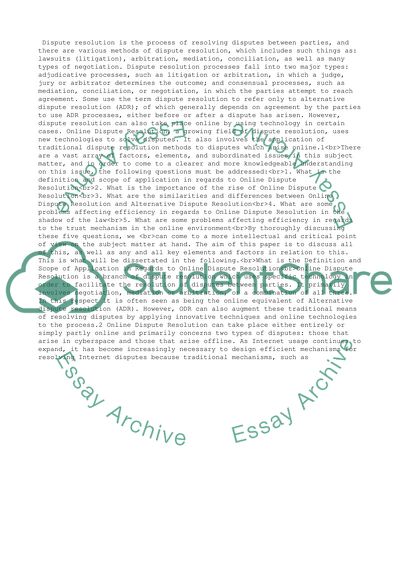Cite this document
(“Online Alternative Dispute Resolution Essay Example | Topics and Well Written Essays - 6250 words”, n.d.)
Online Alternative Dispute Resolution Essay Example | Topics and Well Written Essays - 6250 words. Retrieved from https://studentshare.org/business/1518783-online-alternative-dispute-resolution
Online Alternative Dispute Resolution Essay Example | Topics and Well Written Essays - 6250 words. Retrieved from https://studentshare.org/business/1518783-online-alternative-dispute-resolution
(Online Alternative Dispute Resolution Essay Example | Topics and Well Written Essays - 6250 Words)
Online Alternative Dispute Resolution Essay Example | Topics and Well Written Essays - 6250 Words. https://studentshare.org/business/1518783-online-alternative-dispute-resolution.
Online Alternative Dispute Resolution Essay Example | Topics and Well Written Essays - 6250 Words. https://studentshare.org/business/1518783-online-alternative-dispute-resolution.
“Online Alternative Dispute Resolution Essay Example | Topics and Well Written Essays - 6250 Words”, n.d. https://studentshare.org/business/1518783-online-alternative-dispute-resolution.


